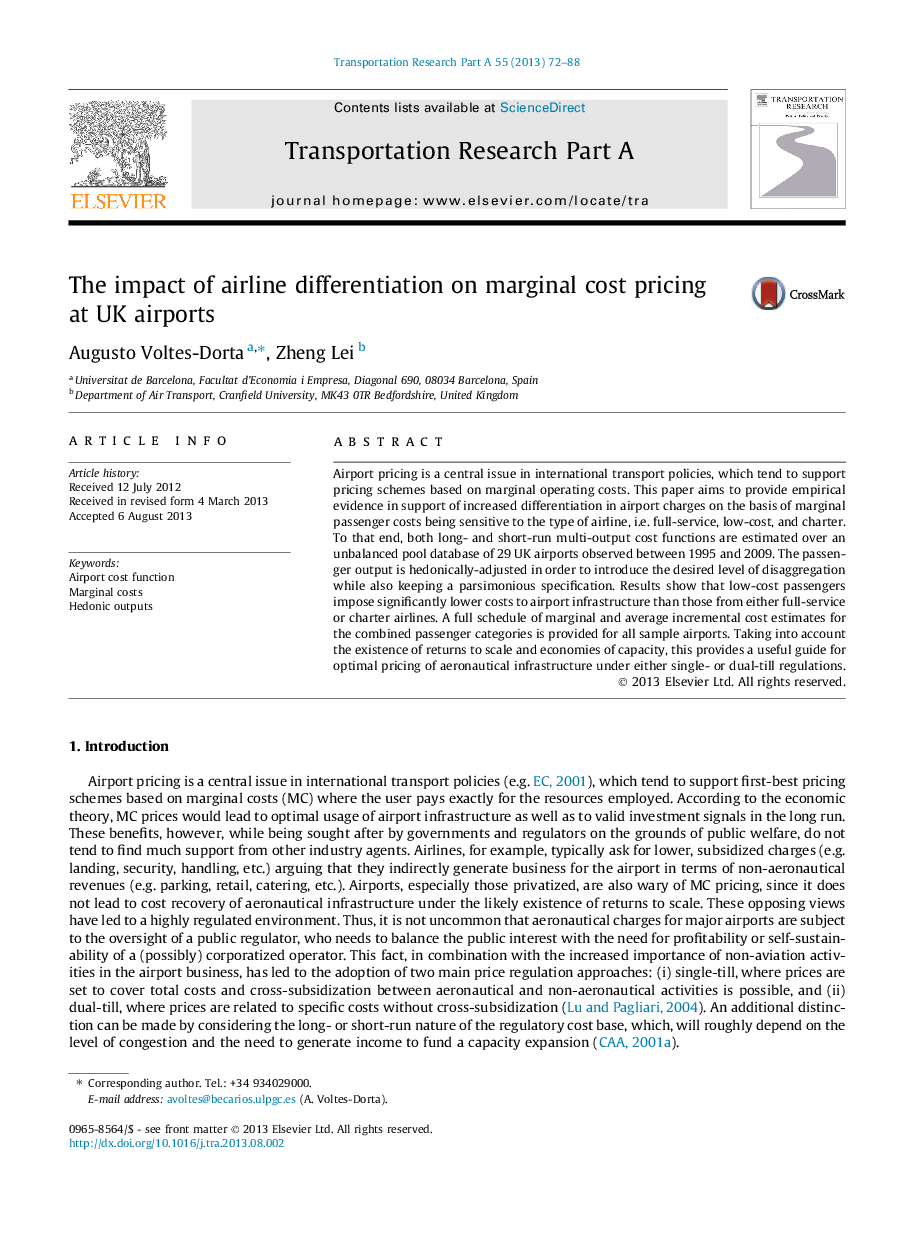| Article ID | Journal | Published Year | Pages | File Type |
|---|---|---|---|---|
| 311528 | Transportation Research Part A: Policy and Practice | 2013 | 17 Pages |
•This paper aims to prove that marginal passenger costs are sensitive to airline type.•Low-cost passengers impose lower costs to the airport than full-service passengers.•Charter passengers impose higher costs to the airport than full-service passengers.•This result support airlines’ claims for differentiated airport charges.
Airport pricing is a central issue in international transport policies, which tend to support pricing schemes based on marginal operating costs. This paper aims to provide empirical evidence in support of increased differentiation in airport charges on the basis of marginal passenger costs being sensitive to the type of airline, i.e. full-service, low-cost, and charter. To that end, both long- and short-run multi-output cost functions are estimated over an unbalanced pool database of 29 UK airports observed between 1995 and 2009. The passenger output is hedonically-adjusted in order to introduce the desired level of disaggregation while also keeping a parsimonious specification. Results show that low-cost passengers impose significantly lower costs to airport infrastructure than those from either full-service or charter airlines. A full schedule of marginal and average incremental cost estimates for the combined passenger categories is provided for all sample airports. Taking into account the existence of returns to scale and economies of capacity, this provides a useful guide for optimal pricing of aeronautical infrastructure under either single- or dual-till regulations.
